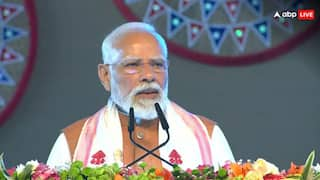CPEC in dock after Pak, Nepal withdraw from dam projects

Baltimore (Maryland) [USA], Nov 29 (ANI): An expert has drawn attention to Pakistan and Nepal`s withdrawal from two dam-building deals functional with China, citing measures Beijing might have to adopt in order to ensure equitable terms and distribution of benefits among those that need the investment.
A senior fellow at the S Rajaratnam School of International Studies, Dr James M Dorsey, in an article named 'Commercial terms call into question China's win-win Belt and Road initiative', emphasised the Pakistani withdrawal took on an added significance because it was included in the China-Pakistan Economic Corridor (CPEC).
"The withdrawal coincides with mounting questions in Pakistan, a crown jewel in Chinese geo-strategic ambition, about what some see as a neo-colonial effort to extract the country's resources," he added.
Dr Dorsey mentioned that the withdrawals and questioning called into question Beijing's economics-centred approach to geopolitics based on the long-standing win-win principle of the Chinese policy - the notion that all parties benefit from their investment and largesse - especially in the face of China wanting to secure economic dominance in Eurasia.
Pakistan and Nepal announced their withdrawals last week in separate statements.
Pakistani Water and Power Development Authority chairman Muzammil Hussain said the Chinese conditions for financing the Diamer-Bhasha Dam were not doable and were against their interests. China and Pakistan were also at odds over ownership of the hydropower project on the Indus River.
"The project was included in the CPEC after the government had failed to secure funding from international institutions like the World Bank and the Asian Development Bank (ADB) because of Indian objections that it was in disputed territory," the author quoted.
Nepal scrapped a USD 2.5 billion deal with China's Gezhouba Group to build a hydroelectric project on the Budhi Gandaki River in the west of the country two days before the Pakistani decision.
The author then went on to quote Chinese analysts, who suggested that the withdrawals could set a precedent, adding China was likely to encounter greater resistance not only on its financial terms, but also regarding assessments of what economic benefit investment target countries could expect.
He then quoted a State Bank of Pakistan study, which concluded that exports of marble to China, and the re-export to Islamabad of Pakistani semi-processed marble was hurting Pakistan's marble industry to a significant extent.
"The Pakistani marble industry's experience strokes with the overall suggestion of the leaked long-term plan for CPEC that projects risks of economic domination, the creation of a surveillance state, and would allow China to shape Pakistan's media landscape. It projected an approach that has already sparked popular resistance and setbacks in countries and regions such as Sri Lanka, Myanmar, and Balochistan," he added.
Dr Dorsey further said that China was trying to transform Pakistan into a raw materials supplier rather than an added-value producer.
"Effectively turning Pakistan into a raw materials supplier rather than an added-value producer, a prerequisite for a sustainable textiles industry, the plan sees the Xinjiang Production and Construction Corps in China's troubled north-western province of Xinjiang, as the vehicle for the introduction of mechanisation as well as new technologies in Pakistani livestock breeding, development of hybrid varieties, and precision irrigation. Added value would be produced in Xinjiang as part of China's bid to quell ethnic unrest among the Uighur population," the article said.
"Chinese companies would be offered preferential treatment regarding land, tax, logistics and services as well as enterprise income tax, tariff reduction and exemption and sales tax rate incentives," it added.
f
The author concluded by mentioning that China needed to nurture better understanding of its intentions and visions, to prevent unnecessary suspicions about its geopolitical ambition, quoting The Jakarta Post, which had acknowledged that Pakistan "badly" needed the huge infrastructure spending that China was bringing. (ANI)
This story has not been edited. It has been published as provided by ANI





























